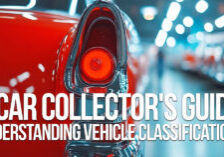When to Drop Comprehensive Car Insurance
When to Drop Comprehensive Car Insurance

When to Drop Comprehensive Car Insurance
Comprehensive car insurance can be a valuable asset, but it can also be expensive. If you have an older car, you may be wondering whether it’s still worth paying for comprehensive coverage.
In general, you should drop comprehensive car insurance if your premiums exceed about 10% of your vehicle’s value. This is because the maximum amount you could recover from comprehensive coverage is typically the actual cash value of your car, minus your deductible. If your premiums are higher than 10% of your car’s value, you’re essentially paying more for coverage than your car is worth.
Here’s an example. Let’s say your car’s actual cash value is $5,000 and you have a $500 deductible on your comprehensive coverage. The most you could recover from comprehensive coverage if your car were totaled in an accident or stolen is $4,500. If your premium for comprehensive coverage is $450 annually (10% of the maximum $4,500 the insurance company would pay), you should consider dropping your comprehensive coverage.
Of course, there are a few factors to consider before you drop comprehensive coverage. First, you need to make sure you have liability insurance. All states require liability insurance, and it’s important to have this coverage in case you cause an accident.
Second, you need to consider your financial situation. If you can’t afford to replace your car if it’s totaled in an accident or stolen, you may want to keep comprehensive coverage. However, if you can afford to replace your car, you may be better off dropping comprehensive coverage and saving money on your premiums.
Finally, you need to consider your risk tolerance. If you’re worried about your car being damaged or stolen, you may want to keep comprehensive coverage. However, if you’re comfortable with the risk of not having comprehensive coverage, you can save money by dropping it.
If you’re not sure whether or not to drop comprehensive car insurance on your older car, talk to your insurance agent. They can help you assess your risk and make a decision that’s right for you.
Here are some additional tips for saving money on car insurance:
- Shop around for quotes from different insurance companies.
- Raise your deductible.
- Take advantage of discounts, such as discounts for good driving records, multiple cars, and anti-theft devices.
- Consider bundling your car insurance with your homeowners or renters insurance.
By following these tips, you can save money on car insurance and still protect yourself financially.











